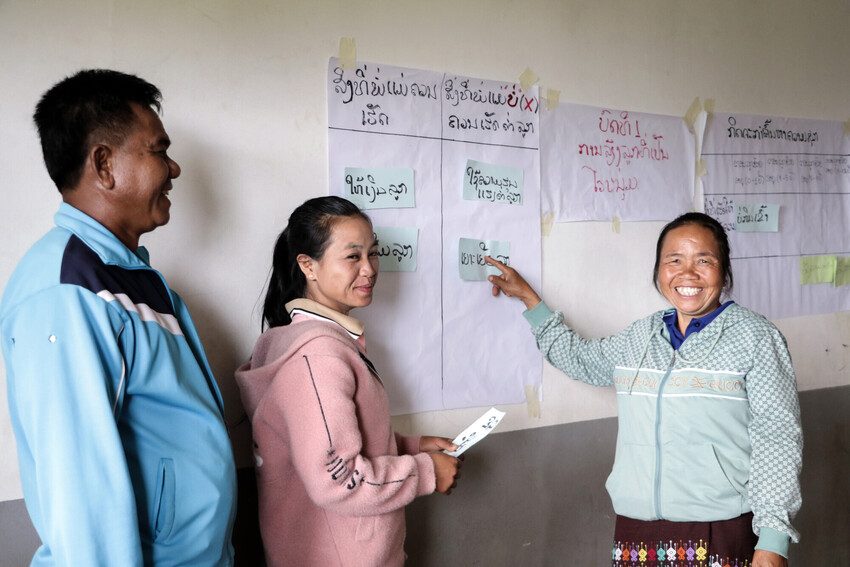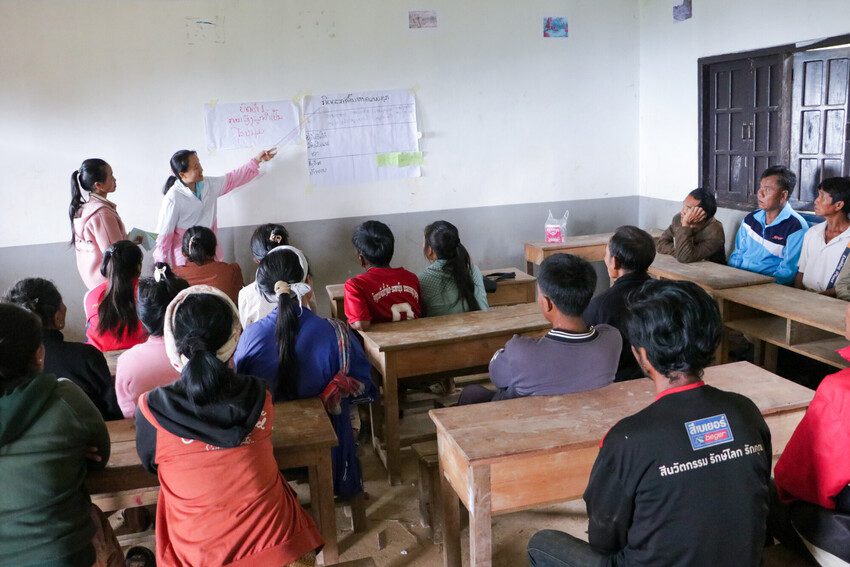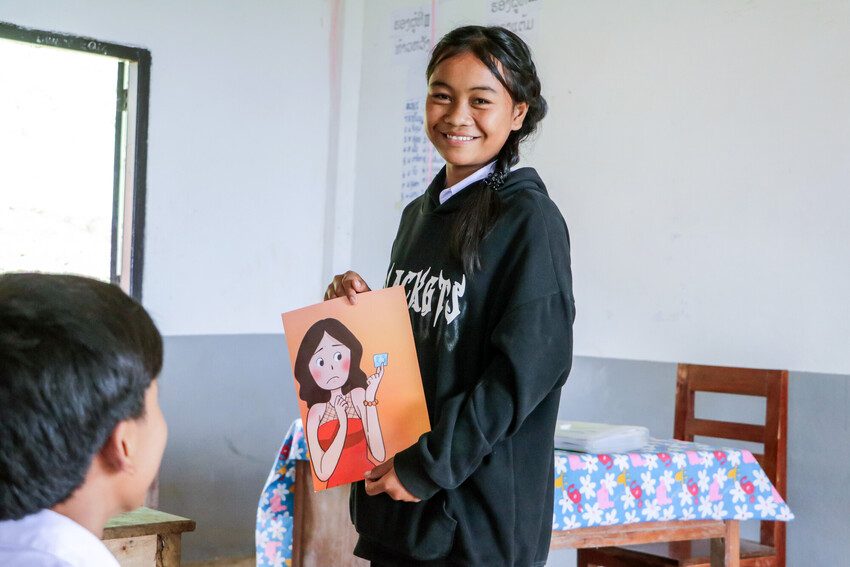Parents break sex education taboo in Laos
Parents Seng and Boonsong have been breaking the taboo of sex education with their children by discussing sexuality and relationships and helping them stay safe.

“I have learnt to protect myself and understand my body. Talking to my parents about these issues is easier now.”
Tan, a 15-year-old schoolgirl
Farmers from the Khmu ethnic group Seng, 45, and Boonsong, 52, live with their families in the rural heartland of northern Laos, where traditional beliefs run deep.
“In the past, my community believed that girls over the age of 20 who had not married were considered spinsters,” says Ms Seng. “I thought it was better to let my children marry young rather than face the judgement of society.”
In Laos, 33% of women are married before the age of 18 and 17.4% have given birth before the age of 18.
The pressure to marry early, often before the age of 18, leads to problems such as teenage pregnancy, high divorce rates and financial instability. In many rural communities, poverty plays a significant role – economic hardship can cause girls to drop out of school, leaving marriage as the perceived path to stability.
Talking about relationships and sexuality
Over the course of 2 months, Seng and Boonsong took part in a sex education training programme that was being hosted in their village. The training covered key issues such as the risks of early marriage, gender norms, sexual and reproductive health, online safety and how to communicate with their young adolescent children about relationships and sexuality.
“I learnt that children should not marry early because it harms their bodies and their future,” says Boonsong. A father of 6, he now makes it a priority to guide his youngest daughter, 13, through her teenage years.

One of the programme’s biggest hurdles has been parents’ reluctance to discuss sensitive issues. “Many parents feel uncomfortable discussing sexual matters with their children due to feelings of shame and the belief that it may encourage early sexual activity,” says Khat, 27, who facilitated some of the sessions.
However, through role-playing exercises, Seng began to embrace open conversations with her children. “I now encourage my children to focus on their studies. I’ve taught my daughters about menstrual health and pregnancy prevention, and I’ve introduced my son to the concept of using condoms for protection,” she says.
“I now make an effort to talk to my children during meals or in the fields. They listen more and our bond has become stronger,” explains Boonsong. Seng echoes this sentiment, adding, “I would advise other parents to take the time to understand their children, support their education and help them secure a better future.”
Students raise peer awareness
This open communication extends beyond the family, with student clubs forming. Students raise awareness among their peers at school using Merlin Phahoo, an online reproductive health information hub.
“I have learnt to protect myself and understand my body. Talking to my parents about these issues is easier now,” says Tan, a 15-year-old schoolgirl.

Despite progress, challenges remain. Access to accurate information about pregnancy prevention and sexually transmitted diseases is still limited in many areas. “We still have a long way to go to reach all families with the right knowledge,” says Phasouk, a district project coordinator.
About the project
Covering 10 training topics in 15 villages, the programme directly addresses the high rates of early marriage and teenage pregnancy in Laos.
The training programme is run by Plan International in partnership with the Gender Development Association (GDA) and the Promotion of Family Health Association (PFHA).
More than just education – this is a transformative movement that aims to challenge ingrained norms and foster a culture of empathy and understanding. With the financial support of the Finnish government and the collaboration of civil society organisations such as GDA and PFHA, as well as key local institutions such as the District Education Office and the District Women’s Union Office, communities are coming together to build a better, more informed and equitable future.
Sex education programmes are crucial to breaking the cycle of poverty and reducing school drop-out rates. Phasouk concludes: ‘By addressing these issues at the family level, we are planting the seeds of change for stronger communities.”
Categories: Sexual and reproductive health and rights